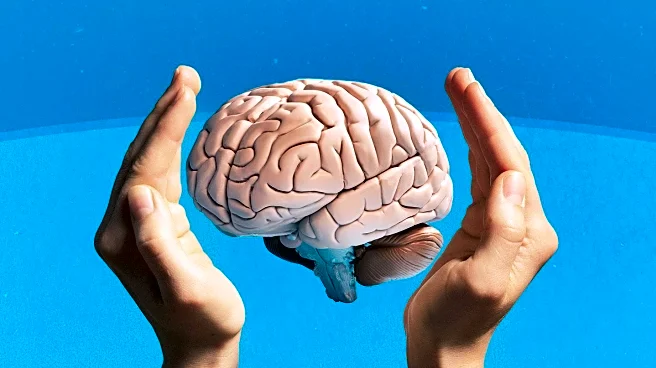What is the story about?
What's Happening?
Creatine, traditionally known for its muscle-boosting properties, is being investigated for its potential cognitive benefits, particularly in alleviating brain fog. Originally popular among athletes for enhancing performance, creatine is now gaining attention for its possible effects on short-term memory, mood, and focus. Dr. Henry Chung from the University of Essex notes its mainstream adoption beyond elite sports. Research suggests creatine supplementation may improve performance in high-intensity workouts and potentially aid cognitive functions. Katie Mansell, a user of creatine, reports improvements in mood and mental clarity, although she also uses other supplements and hormone replacement therapy. Despite promising anecdotal evidence, experts like Professor Emeritus Trevor McMorris emphasize the need for more research to confirm these cognitive benefits.
Why It's Important?
The exploration of creatine's cognitive benefits could have significant implications for individuals experiencing brain fog, particularly those undergoing hormonal changes such as perimenopause. If proven effective, creatine could offer a non-pharmaceutical option to enhance mental clarity and focus, potentially benefiting millions. The supplement's popularity and accessibility make it a viable candidate for widespread use, but its effects on different demographics, including women, require further study. As creatine becomes more mainstream, understanding its full range of benefits and side effects is crucial for informed consumer choices and potential medical recommendations.
What's Next?
Further research is needed to establish the efficacy of creatine in improving cognitive functions and to understand its impact across different populations. Scientists are encouraged to conduct more studies, particularly focusing on female biology and hormonal fluctuations. As creatine's popularity grows, healthcare professionals may need to consider its potential side effects and interactions with existing conditions. The ongoing research could lead to new guidelines for creatine use, especially in non-athletic contexts.
Beyond the Headlines
The increasing interest in creatine for cognitive benefits highlights a broader trend of repurposing supplements traditionally used for physical enhancement. This shift reflects a growing demand for holistic approaches to health and wellness, integrating physical and mental well-being. The ethical considerations of promoting supplements without comprehensive research are significant, as consumers may face risks without adequate information.
















